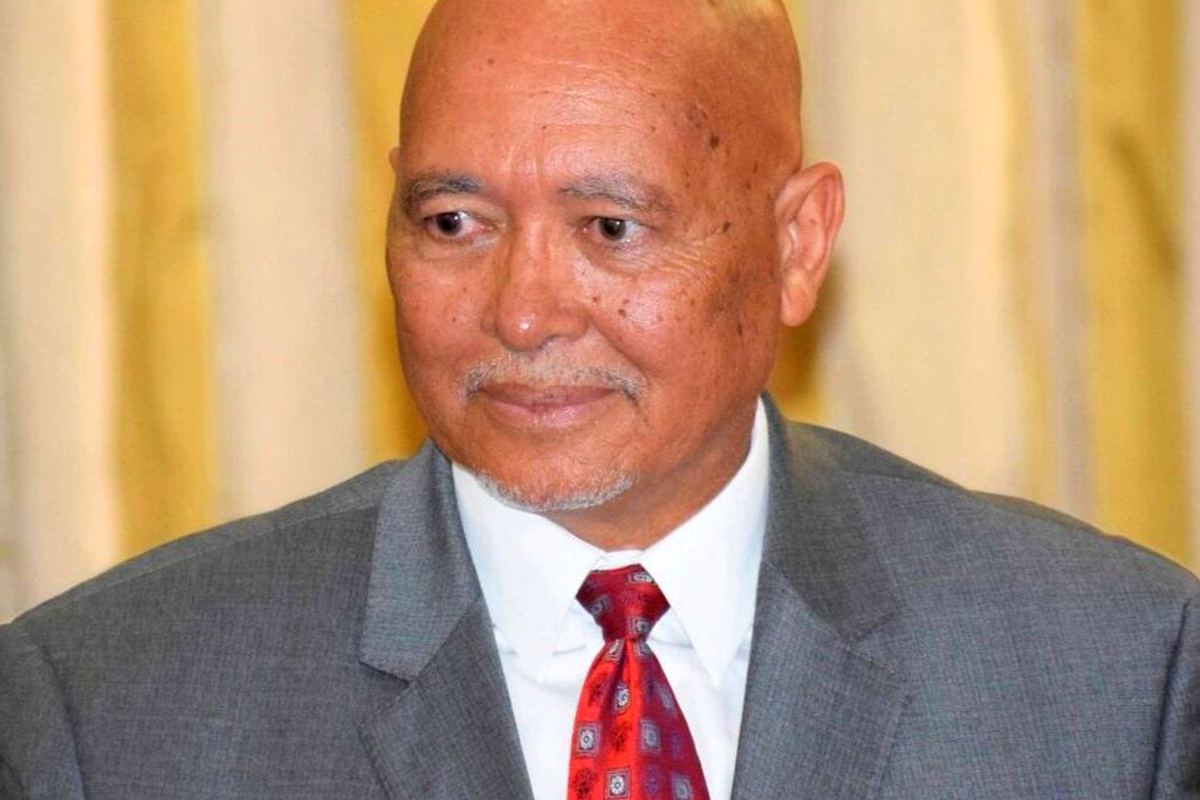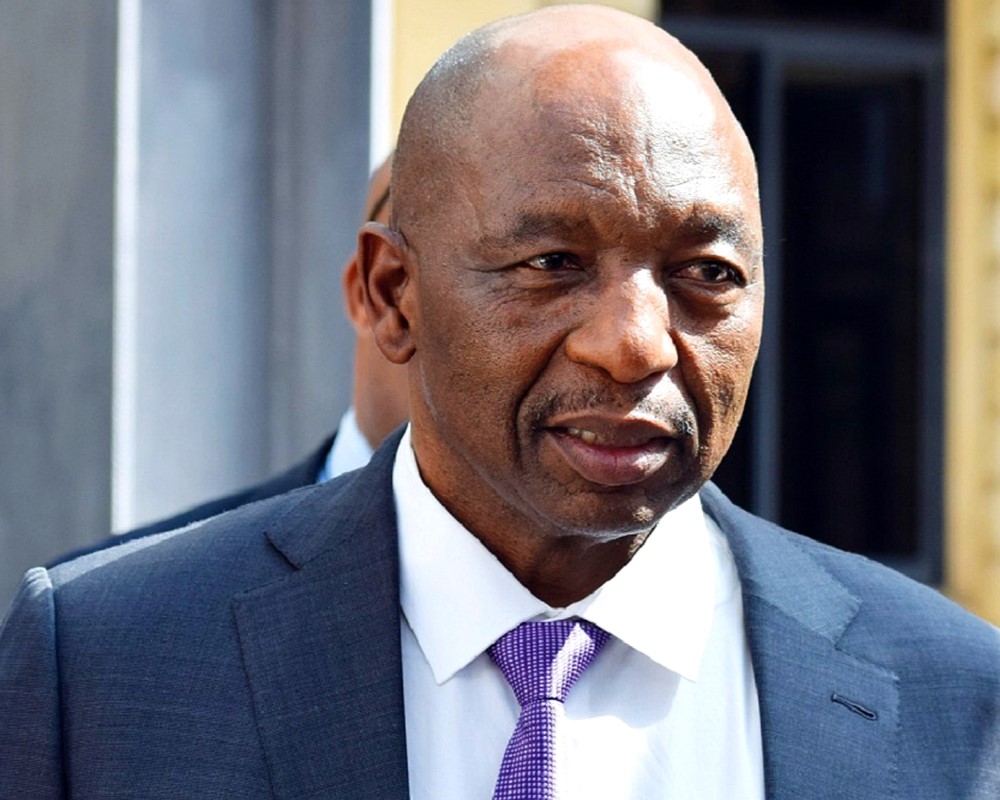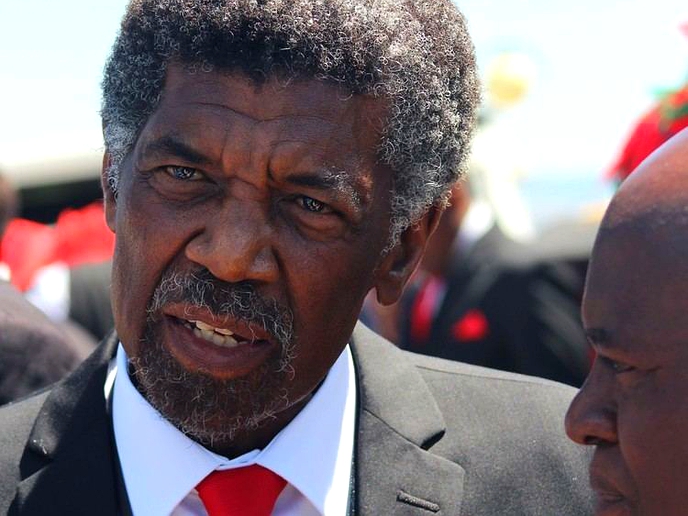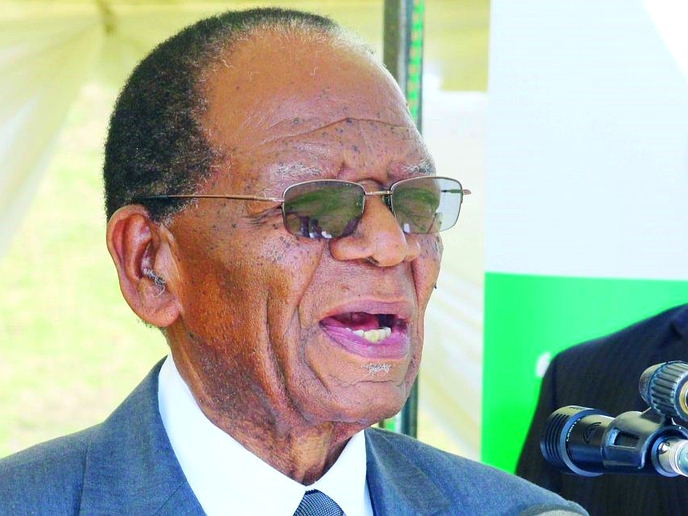THE government has dismissed recommendations from legal experts to draft a new Constitution to safeguard the reform process effectively.
politics
May 10, 2024
RELEBOHILE TSOAMOTSE
5 min read
Govt dismisses calls for new Constitution

Law and Justice Minister, Richard Ramoeletsi
Story highlights
Law and Justice Minister Richard Ramoeletsi argued that the nation lacks the resources and time for such an endeavour.
Instead, he announced that the proposed changes would be implemented through amendments.
This decision was revealed as Ramoeletsi introduced two reform-related bills in the National Assembly this Monday, aiming to facilitate the enactment of legislation based on these bills.
He clarified this decision during a media briefing after presenting the bills, responding to inquiries about disregarding the advice for a complete constitutional overhaul.
Ramoeletsi questioned: "Would we finish if we were to start over? Consider the money already spent and the time lost."
Legal experts argue that the process used to develop the bills was incorrect. They contend that not only is the procedure flawed, but the content of the bills also presents significant issues. Specifically, some proposed laws contravene the Bill of Rights.
Furthermore, these experts describe the proposed reforms as dismemberment rather than mere amendments. Dismemberment represents an illegitimate and unconstitutional method of altering a constitution, introducing significant changes that could fundamentally breach its design, substance, and structure.
Despite these concerns, Ramoletsi acknowledged the suggestions from various quarters that drafting a new constitution would be more appropriate. However, he asserted that the government does not view the reforms as dismemberment.
Following the Attorney General's advice, the government has opted to divide the bill into subparts, aiming for their passage into law.
"The Attorney General provided his interpretation, which has led us to the point where we could present the two bills today," Ramoeletsi also said.
Even the interpretation of journalist and activist Kananelo Boloetsoe's judgement, in which he challenged the Parliament's conduct in passing reforms, does not suggest an interpretation that supports the manner in which the reforms were passed.
In Boloetsoe’s case against Parliament’s standing order 105B, the Court of Appeal referenced the spirit and purpose of the Constitution. Experts argue that many provisions in the reform bill do not align with the spirit of Lesotho’s Constitution.
One such expert, Constitutional Law Professor Hoolo Nyane, voiced his concerns at a Constitutional Reforms symposium hosted by the human rights organisation Transformation Resource Centre (TRC) in December 2023.
He said the drafters of the reform bills did not sufficiently consider the structure and theory of the current Constitution.
Prof. Nyane noted that a thorough understanding of the country’s Constitution would ensure that proposed amendments align with its foundational theories.
He explained that since Lesotho’s Constitution is monarchical, democratic, parliamentary, and liberal, all proposed amendments should conform to these four theories to withstand constitutional scrutiny.
Ramoeletsi remarked: "Some people describe the proposed reforms as dismemberment, but the courts have already made their decisions, and our Attorney General provided his interpretation, which we presented in Parliament today. It is his guidance that has led us to this point."
This year marks the 31st anniversary of Lesotho's Constitution.
Prof. Nyane said: "The Constitution is not only outdated but also flawed. What we need is a complete overhaul, starting with the repeal of the current Constitution."
He noted that an opportunity for such a rewrite presented itself when the Omnibus was nullified by the courts in September 2022.
In his recent presentation of the bills, the Law Minister introduced the 10th Amendment, which includes bills that require a simple majority to pass into law, and the 11th Amendment, which contains bills requiring a two-thirds majority.

Prime Minister Ntsokoane Matekane
Enjoy our daily newsletter from today
Access exclusive newsletters, along with previews of new media releases.

Constitutional Law expert, Prof. Hoolo 'Nyane
He also mentioned another set of bills that would require a referendum to become law, but explained that the government has decided to temporarily suspend their presentation while it mobilises resources and logistics for consultations.
"The government is committed, we have allocated a budget for the reforms. However, we did not set aside funds for a referendum and are hopeful that we will secure the necessary budget in the midterm."
The Minister added that international partners, including the European Union (EU) and the United Nations Development Programme (UNDP), have pledged financial and technical support for the reforms.
He noted that the tabling of the bills represents a significant milestone in Lesotho’s reform process, which has faced numerous setbacks previously.
He reminded citizens that Prime Minister Ntsokoane Matekane’s government has committed to making substantial progress on reforms within the first three months in office.
However, the government first engaged with various stakeholders to gather opinions on the best way to proceed with the reforms. According to Ramoeletsi, this consultation process took five months, culminating in June 2023 with parties signing a memorandum of understanding that the reform bill would be revived at the stage it was when the 10th Parliament was prorogued.
This effort, however, was thwarted by a constitutional challenge when Boloetse contested Parliament’s standing order 105B, which allowed it to resume business at the stage it had been left at.
The reform process initially faced a major setback in September 2022 when the High Court (sitting as the Constitutional Court) nullified the 11th amendment to the Constitution after it was passed by the recalled 10th Parliament.
This Parliament had sought to implement key changes to the Constitution before the country’s 2022 general elections.
The recall was later deemed unlawful following a constitutional challenge to the supposed state of emergency that had prompted the recall of Parliament.
Consequently, all parliamentary business conducted after its recall was invalidated. Even without the constitutional challenge, some provisions could have been passed and signed into law without a referendum, making the laws vulnerable to further legal challenges.
An attempt by the current Parliament to revive reforms was also unsuccessful, as the Appeal Court nullified Parliament’s standing order 105B.
This order had empowered the Parliament to reinstate business that lapsed with the dissolution or prorogation of previous parliaments, but the court ruled that “Parliament cannot bind its successor.”
Tailored for you






